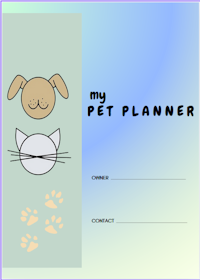Puppy Behaviour
4-month-old Rottweiler/Shepherd
Weighing 27 lbs
by Lynnette
(Windsor, Ontario)
My Rottweiler/Shephard pup is 4 months old and she is already dreading to be locked up in the house.
She chews on the bathroom door and anything that's made of wood. Please help as the damage is getting expensive, and please don't tell me to get her fixed.
Answer From the Editors at Dog-Spoiling
I assume from your question that you have to leave your Rottweiler/Shepherd pup while you are away during the day at work or school.
If this is the case, then her behavior is pretty typical of a young dog being left alone, but there are things you can do to help the situation.
Your young pup seems to have a case of separation anxiety or just plain boredom, so it is good that you are addressing it at this young age especially if you will continue to be away during the day.
Pups have a lot of energy, curiosity and love to play. Your pup is a combination of two breeds that are at the high end of the scale when it comes to their need for physical and mental activity. To meet these needs they need sufficient exercise, play time with you and socialization with life situations. These points are particularly meaningful when it comes to powerful breeds such as your's will grow up to be.
Puppies want to put everything in their mouths, partly to learn about things and partly to stimulate their teeth and gums.
We have a whole page of good information regarding what owners can do for their pets when they are away from the home. You can read our suggestions for the home alone dog, here.
In the meantime, here is one suggestion you can start right away:
When you are at home, start a ritual of going through the motions of leaving the house, but do it in a very matter of fact sort of way. As you prepare to go out the door don't make a fuss of your dog - just say something something like "I'm going now Roxie, I'll be back later on".
Now go stand outside and come back after a short while - again in a very matter-of-fact fashion. Don't make a big fuss either upon leaving or returning because you don't want to convey any anxiety about these events. Gradually lengthen the time you are gone. It shouldn't take too long for your dog to get used to your absences because she will now come to know that you always return.
If there are specific things you do when getting ready to go out that seem to agitate her, try to desensitize her to these actions by doing them around her when you are not planning to leave the house.
It's important while practicing this exercise, to make sure your dog has something to divert her attention after you leave, such as a puzzle toy with treats inside; the TV tuned in to Animal Planet, or anything you know she loves.
When you actually do have to go out, it would be good if she could be in a less confined space where she might also have a crate with some toys inside. And perhaps someone to visit and feed her during the day - puppies need frequent meals after which they usually calm down for a while and take a nap.
One thing you have going in your favor, is that you have a puppy combination of two breeds that are known for their intelligence and quick learning abilities!
Best of luck to you.
